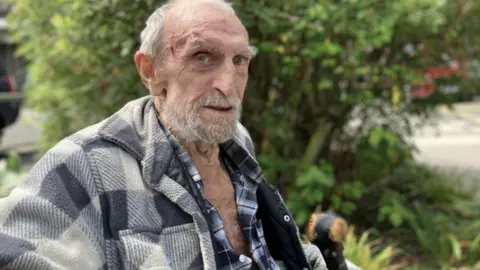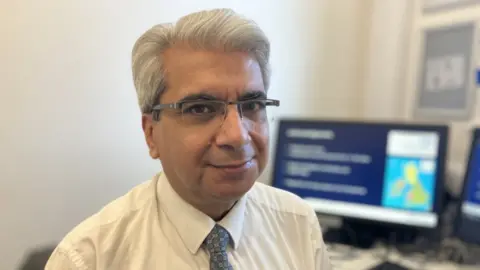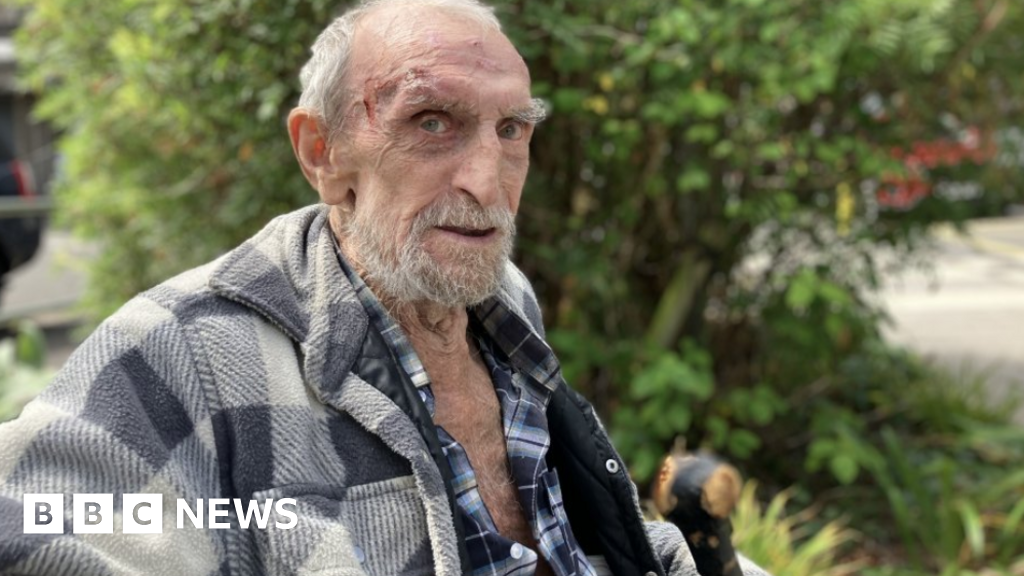BBC West Health Correspondent
 BBC
BBCA man who was the first to take part in a medical trial for penile cancer says it may have extended his life by two years.
Eddie Baker, 83, was given immunotherapy alongside the usual treatment of chemotherapy as part of the clinical trial, named EPIC.
The treatment was found to have extended the predicted lifespans of more than half of the participants in the study, which was carried out by University Hospitals Bristol and Weston NHS Foundation Trust.
Mr Baker, from Yate, South Gloucestershire, said: “All I can say is, it is the most wonderful thing that ever happened to me because I know if I hadn’t had that, I would not be on this planet to this day.”
Mr Baker told the BBC his cancer had been caught late because it took over a year for him to come forward with his symptoms.
The NHS says symptoms can include bleeding, a rash, a lump or growth, and a change in skin colour.
“It didn’t look very good,” Mr Baker said. “The actual swelling got bigger and bigger and then I was trying to get somewhere to get my life sorted out and find out what it was. It was too late.”
He had to have an amputation and has been left with incurable cancer.
Consultant oncologist and chief investigator of the EPIC study, Professor Amit Bahl, said the stigma around such symptoms often leads to late diagnosis.
He said: “In cancers like these, there is no support system, you can’t go out and talk about it because most patients have never heard you can get cancer in the penis.
“If you ask ladies, they have heard about cancer in the cervix, in the vagina, but cancer in the penis never gets talked about.”
The immunotherapy treatment used in the trial is not available on the NHS, but Professor Bahl is applying to the Cancer Drugs Fund to pay for the small number patients who may benefit.

Using immunotherapy to treat cancer is still considered by doctors to be a relatively new approach.
But more than 60 per cent of the patients in the trial, who all had advanced penile cancer, were found to have had a clinical benefit.
Among these patients, predicted lifespans increased to 15 months on average.
Professor Bahl said: “Our aim is to improve outcomes in this rare cancer, which has limited treatment options.
“Penile cancer can be a very aggressive disease, but this study shows we might be able to give men a little more time.
“Penile cancer is rare, and it usually presents externally first, so when patients are diagnosed, early treatments which can cure the cancer are possible.”
The trial has proved so successful that Professor Bahl is now planning to start another trial to give immunotherapy at an earlier stage of the disease, in the hope that it will improve cure rates.


